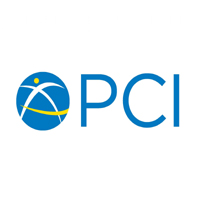
PCI TANZANIA
PO Box 2540
Mwanza, Tanzania
Isamilo Plot 140, Block D Mwanza, Tanzania
[email protected]
Visit website
+255 (0)28 2540493
+255 (0)28 2540493
+255 (0)28 2540493
ABOUT US
PCI/Tanzania began operations in 2008 with a water and sanitation improvement project funded by the Starbucks Foundation Ethos Water Fund which provided access to clean water to 33,000 people living in the rural Manyara Region. Since that time, PCI has expanded and deepened its presence through its US Department of Agriculture-funded Food for Education program which is increasing enrollment and attendance of pre- and primary school children in Mara Region. Most recently, PCI/Tanzania has partnered with Google.org and USAID to develop an innovative approach which is helping pastoralists find greener pastures for their livestock.
PCI’S MISSION: ENHANCE HEALTH, END HUNGER, OVERCOME HARDSHIP
PCI’s mission is to empower people to enhance health, end hunger and overcome hardship.
CLICK HERE TO SEE ALL OPPORTUNITIES AND APPLY NOW
CLICK HERE FOR EMPLOYMENT OPPORTUNITIES
CLICK HERE TO JOIN GLOBAL YOUTH LEADERSHIP PROGRAM
CLICK HERE TO VOLUNTEER FOR PCI
Vision
The most vulnerable people in the world will have the power to lift themselves out of poverty and to create vital, healthy lives for their families and communities now and for the future.
Strong Roots
In 1961, a young doctor from San Diego volunteering at a Tijuana clinic saved the lives of two small children who were dying of pneumonia. This experience led Dr. James Turpin to found PCI and forever change the lives of millions of children and families around the world by providing health and hope to those most in need. Since then, the focus of the organization has remained true to its founder: PCI works in vulnerable communities to improve health and create long-term change by helping people help themselves. For 50 years, thousands of dedicated individuals and groups have worked to make this vision a reality.
CLICK HERE TO SEE ALL OPPORTUNITIES AND APPLY NOW
CLICK HERE FOR EMPLOYMENT OPPORTUNITIES
SERVICES
INCREASING ACCESS TO EDUCATION AND IMPROVING HEALTH
Since 2010, PCI has been implementing USDA’s Food for Education program which aims to improve literacy outcomes through the provision of school meals which help increase attendance, enrollment, and attentiveness for students within 231 schools. Through the program, farmers and schools in Nyabehu Village, Guta Ward, Bunda District, Tanzania, are partnering to benefit the local economy and the nutrition and education of hundreds of children and their families who suffer from some of the highest levels of chronic poverty, persistent drought and food insecurity in the country. These challenges contribute to poor education outcomes in the region.
PCI is working with local governments to provide daily school meals and increase the capacity of Village Councils and School Committees to identify and address barriers to access to school for girls and boys and mobilize communities to contribute time, funds, and in-kind goods to actively participate in all aspects of the program. To date, PCI has connected 30 farmer groups with participating schools, which have provided 6.4 metric tons to support school meals.
In addition, PCI works hand-in-hand with a variety of local stakeholders and builds their capacity to construct and use ecological stoves, establish student-led School Health Clubs, conduct de-worming campaigns, construct school latrines and rainwater harvesting tanks, and cultivate school gardens. To improve the quality of education, PCI improves student-to-textbook ratios and works closely with the Ministry of Education and vocational training and education officials at all levels to increase teachers’ skills through training on child-centered teaching methodologies.
PCI is also enabling families to improve their quality of life by establishing Women Empowered (WE) groups that contribute to the social and economic empowerment of women through village savings and loan activities and discussion of social issues affecting women and girls. 275 WE groups have been formed in the program area, consisting of 6,133 community members which have already accumulated over $385,000 in savings.
Building on the Food for Education program, PCI and Kansas State University are implementing a rigorous, field-based nutritional efficacy study to assess changes in nutritional status among children under five through the provision of novel, fortified sorghum-based food aid products, the findings of which will inform PCI’s nutrition programming in Tanzania as well as global food aid policies and practices.
HARNESSING TECHNOLOGY TO IMPROVE LIVELIHOODS FOR PASTORALISTS
In 2013, with funding from USAID, PCI developed an award-winning innovation that provides semi-nomadic pastoralists with satellite-powered maps showing the density of vegetation in their traditional grazing lands. With the map, pastoralists can make better decisions on where to take their livestock to graze—an imperative decision that has become increasingly challenging due to climate change. The pilot project tested the potential of the innovation by delivering paper-based vegetation maps to pastoralists in Ethiopia and found a 78?option rate and 47% reduction in herd mortality in the first year. While the results demonstrated that PCI had tapped a real need that could have a transformational impact, the next challenge was to develop a scalable delivery model so that more pastoralists could access the maps.
With Google.org as a partner, PCI sought to develop a mobile application to give pastoralists immediate and direct access to the maps as pasture conditions change. The AfriScout mobile app will not only display up-to-date vegetation maps, but will also geolocate the user and calculate distance to desired grazing areas. The first release launches in January of 2017 for early stage field testing. PCI will be able to continue to challenge our assumptions and begin laying the foundations for this next phase of the project. Eventually, pastoralists across the continent of Africa will have access to relevant digital content that they can use to improve their livelihoods.
RECENT PROGRAM HIGHLIGHTS
In partnership with Tanzania Marketing and Communication (TMARC), PCI strengthened local capacity and reduced risky sexual behavior and HIV infection among adolescents across Tanzania through the Families Matter Project funded by the United States Centers for Disease Control and Prevention (CDC).
With funding from the Starbucks Foundation Ethos Water Fund, PCI implemented a three-year water and sanitation project which provided access to clean water to 33,000 people living in the rural Manyara Region by constructing and rehabilitating 129 water points, forming community-led water user groups, and improving water and sanitation practices.
Download the Tanzania fact sheet.
CLICK HERE TO SEE ALL OPPORTUNITIES AND APPLY NOW
CLICK HERE FOR EMPLOYMENT OPPORTUNITIES

